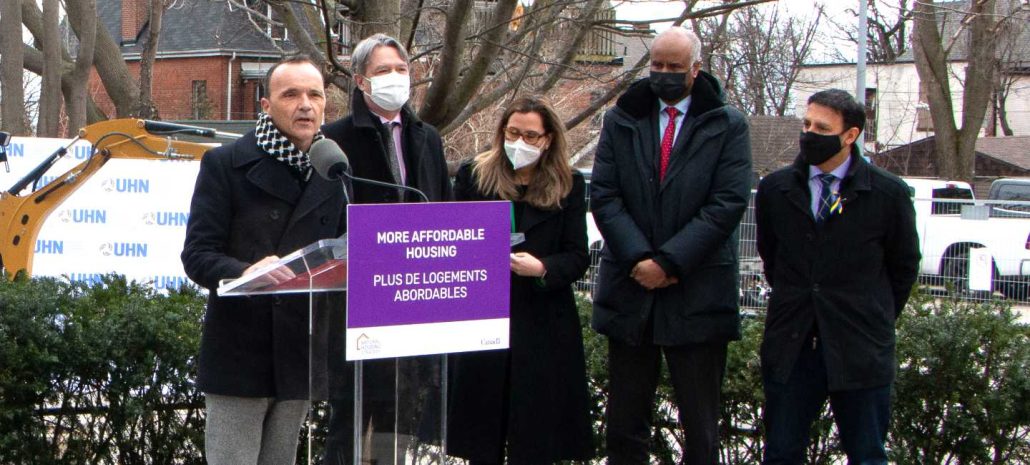
This National Housing Day, it’s no secret we are in a housing crisis. From pundits to politicians, Canadians are sounding the alarm. What’s missing in the headlines, forecasting and proposed strategies, is a serious commitment to build deeply affordable and supportive housing at a pace that will solve the added crises facing our unhoused neighbours. Ignoring these challenges isn’t going to make them go away.
In Toronto, nearly 10,000 people reported experiencing homelessness in the last three months — and over 50 per cent of those people experienced chronic homelessness over the last six months. Peel Region saw a 48 per cent increase in homelessness between 2018 and 2021.
The root causes of homelessness are complex, and often intersect with other challenges. In the 2021 York Region Point in Time homelessness count, one in 10 surveyed cited intimate partner violence as the primary reason for losing their housing. There is also an overrepresentation of racialized people experiencing homelessness across our regions. In Toronto alone, of those experiencing homelessness, 15 per cent identified as Indigenous, 31 per cent identified as Black, and 59 per cent identified as racialized.
Deeply affordable options for our neighbours are limited and disappearing fast — for every new unit of housing built we know four units of affordable housing are lost to the private market.
This isn’t just naming the problems — we know the solutions. Through the pandemic we saw governments work at a record pace, cutting red tape, urgently building modular homes, and converting vacant hotel rooms to shelters for our neighbours experiencing homelessness.
We’ve also innovated for long-term solutions through partnerships like the Social Medicine Initiative (SMI), a collaboration between United Way Greater Toronto, the City of Toronto, and University Health Network. The SMI will create dignified homes with wrap-around supports, like harm reduction and access to community services, to support 51 of our unhoused neighbours in Parkdale who have complex mental health needs. When there is a will in our communities, we’ve always found a way—we need to take these solutions and scale them.
Through our decades of experience in the community at UWGT we have identified three priorities for deeply affordable housing in the GTA:
- From the Vertical Legacy Report, we know that addressing the deteriorating conditions of the over 200,000 units in legacy towers across the GTA, is crucial to maintain deeply affordable housing. We need to protect the long-term viability of these housing options as we work to increase supply.
- We need to strengthen rent control policies to limit rent increases when units change over between tenants.
- Lastly, we need immediate, significant investment in deeply affordable and supportive housing, including subsidized and rent-geared-to-income rental units, as well as community sector collaboration to develop affordable housing on public lands.
We can’t waste another second. We need everyone—all levels of government, private, and civic sectors—working together to build safe, secure, deeply affordable housing across Peel, Toronto, and York, to address both the symptoms and root causes of poverty. People—and the foundation for living a decent and dignified life that housing represents—must be a priority, not an afterthought.